Is cheating an epidemic at NPHS? Survey says… Yes.
Students at NPHS take a test: Recently with new technology, students have been finding easier ways to cheat and plagiarize on exams and assignments.
TOWAMENCIN- Students across the country have been back in school for over a month now; however, with the start of school comes the start of stressful tests and long nights of homework. With that stress and work, some look for shortcuts.
Cheating has long been a way to try to lessen the stress of school and has become more and more convenient in the 21st century with the spread of technology. Schools across the country put in place many rules about cheating and plagiarizing in attempts to discourage people from cheating. These rules may seem like they are working, but with cheating occurring so often, it is important to note if the rules are truly serving their purpose.
A Knight Crier survey recently given to 100 students at North Penn High School concluded that at least 78% of students admit to having cheated at some point in school. This significant number has a drastic contrast with the fact that, according to the survey, only about 8% of students have been caught cheating. According to North Penn English teacher, Mrs. Colleen Felder, teachers know cheating is happening in large numbers.
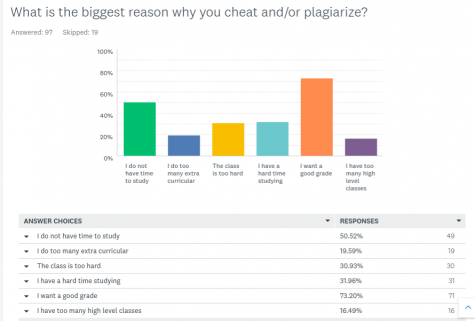
“The problem that we [teachers] run into is, you [students] saying ‘Oh Felder’s quiz, how was it?’ Then another student will say ‘It was okay I got stuck on a couple of the questions about – insert name/word/topic.’ This tends to become tell me everything on the quiz,” explained Felder.
These types of conversations happen throughout the halls thousands of times a day. Some may not consider these conversations cheating, but cheating happens in many different ways. Students will take pictures of tests, memorize questions to tell other students taking the test later, have group chats to share answers on assignments; any possible way there is to cheat, a student has tried it. Cheating seems to have become a part of life in high school. As unfortunate as that statement sounds, it is very true. Plagiarism is on the rise along with cheating; however, plagiarism is an epidemic in the English department.
Mr. Luke Henry is the English department chair at NPHS, and when a teacher suspects plagiarism, he or she must approach him with their evidence before any disciplinary action can be taken. Therefore, every year Mr. Henry sees each case of plagiarism in North Penn High School.
“I think that in the first three or four years of being the department chair it was a relatively steady number of plagiarism cases. In the last four or five [years], I would say I have noticed a dramatic increase, and it used to be critical papers only. But now it’s on homework and smaller assignments or really any assignment,” Henry remarked.
With the rise of internet accessibility over the past 10 years, students can easily get papers from past students or even pay websites to write their paper for them. Teachers can notice these papers on turnitin.com, even if the student tries to make the paper look like he or she wrote it. Students can also send photos of their assignments to one another through group chats and apps, like Snapchat. Plagiarism is becoming a more tempting option to stressed students, but it is a very dangerous option.
Although some students get away with plagiarism and cheating, there are punishments and long-lasting effects. The first time a student is caught cheating the punishment can range from a verbal warning and a zero on the test to having to serve a Saturday school. However, when the student cheats multiple times the punishment can get as severe as suspension. These disciplinary actions stay on a student’s permanent record, which colleges will see.
Plagiarism is handled differently than cheating. When a teacher suspects plagiarism, he or she must gather proof of what is plagiarized. Then, the proof is presented to Henry. If both teachers agree the paper is plagiarized, then both the student and his or her parents would be notified. After that, if the student admits to plagiarism, punishment is appropriately administered.
According to the North Penn High School Plagiarism Policy, “The consequences for plagiarism are as follows: 1st incident – zero for the assignment. 2nd incident – zero for the assignment and possible suspension. All subsequent incidents – zero for the assignment and suspension.”
A zero on the plagiarized assignment may not have a large impact if the assignment is small. However, a zero on a plagiarized critical paper or essay could lead to failing the marking period, which would have a heavy impact on a student’s overall grade in that class. The bad overall grade and record of plagiarism does not help a student when applying to colleges, yet students are still plagiarizing in increasing numbers. So why are students still cheating if they know the consequences?
The answer is not simple and is different for every student. Overall, the most common reason for cheating and plagiarizing is that students want a better grade. Students risk failing, suspension, and a negative record just for one good grade. Many high school students feel extremely pressured to get a good grade and do many extracurricular activities. The end goal for these students is earning scholarships and being accepted into college, but they are sacrificing many things along the way.
We have a lot of cheating and we have a lot of mental health problems that go hand in hand. We [teachers] see a lot of anxiety and depression and its a result of trying to keep up with everything and it is a cruel society that way.
— NPHS English Teacher, Colleen Felder
“We have a lot of cheating and we have a lot of mental health problems that go hand in hand. We [teachers] see a lot of anxiety and depression and its a result of trying to keep up with everything and it is a cruel society that way,” Felder explained.
Teachers are able to look through a window into so many students lives and see the stress that they endure. They see that students are not morally corrupt, but are resulting to extreme measures, cheating and plagiarizing, to accomplish the goals that society has made for them. This does not make cheating and plagiarizing morally correct, but it shows that some students are not mentally stable in today’s society.
Tempted to Cheat? Here are some alternatives:
The rules that have been made for plagiarizing and cheating are not stopping stressed students from committing these offenses. However, there are other options than cheating. At North Penn High School there are many extra help options for all classes. During Knight Time and 8B, students can go visit teachers and receive some extra help. If a student wants more help, teachers are often more than willing to stay after school. There is ADAPT Peer Tutoring where a student tutors another student in whatever subject they need help in. During lunches there is a rotating schedule of English teachers (ACE days) and Math Teachers (BDF days) available to help students. Finally, if a student cannot stay after school because they do not have a ride, North Penn provides late buses on Tuesday at 4:00, Wednesday at 3:15, and Thursday at 4:00.


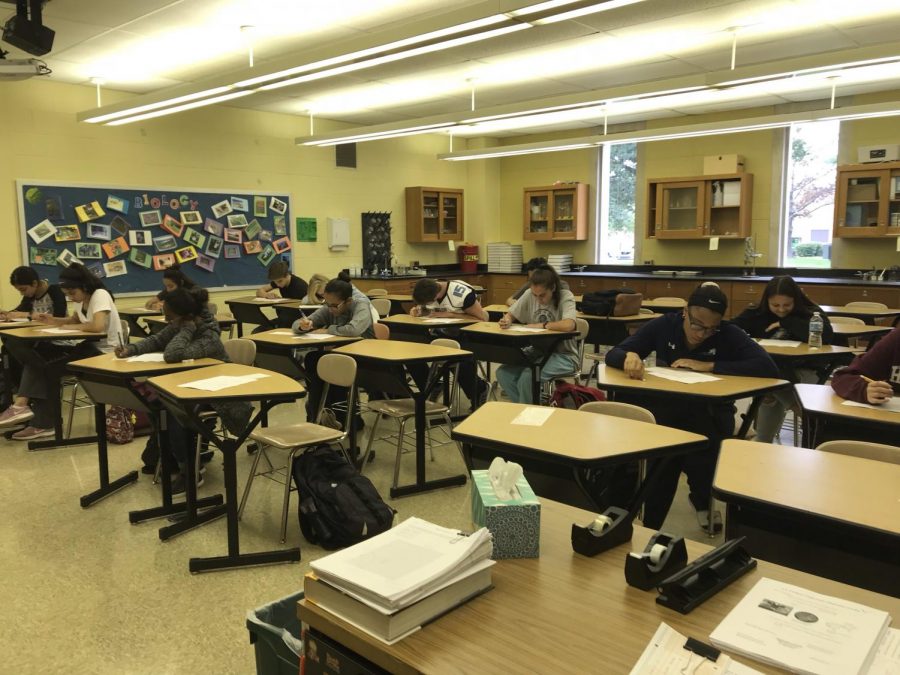
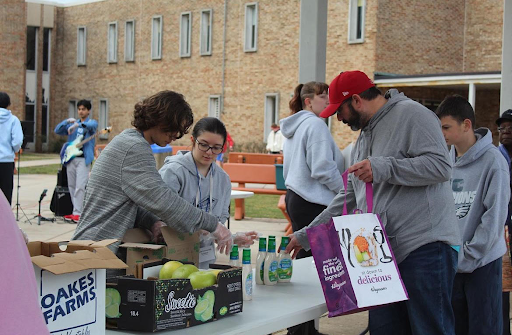

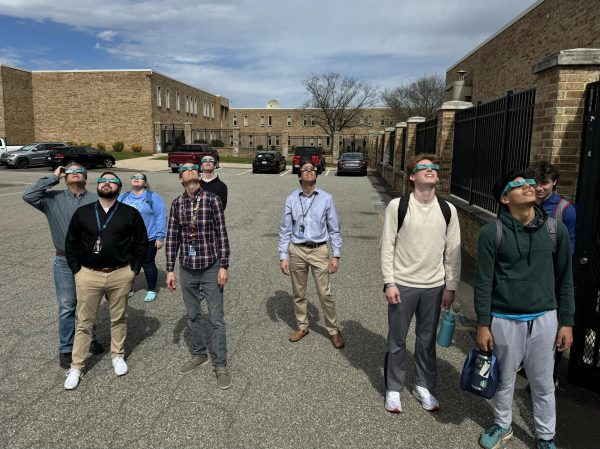

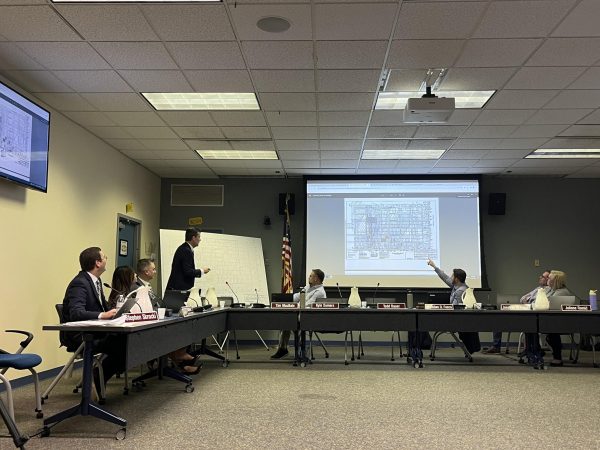
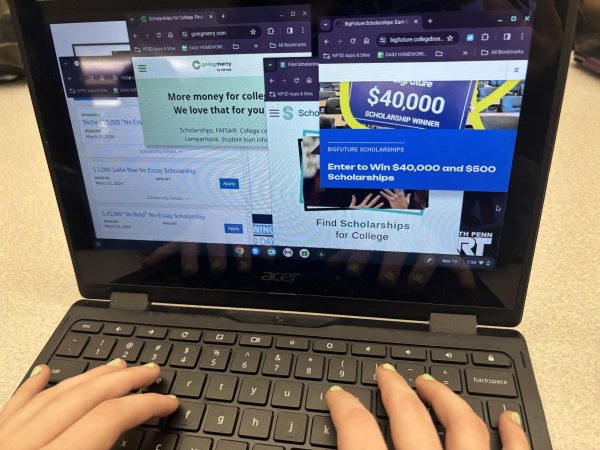
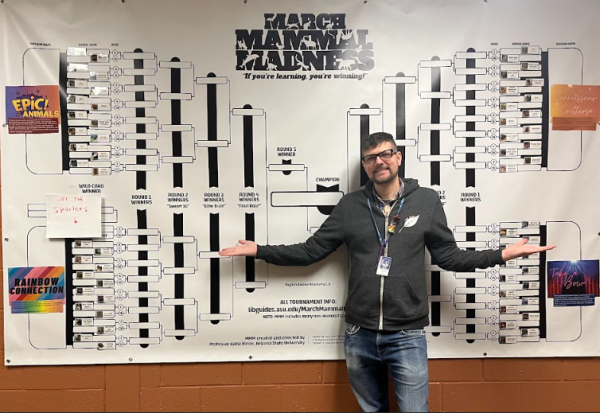
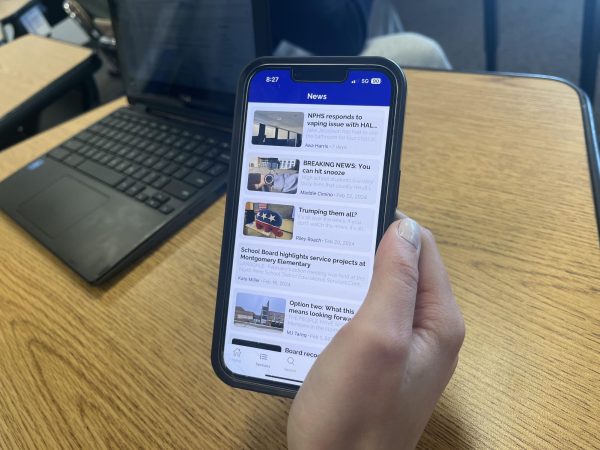
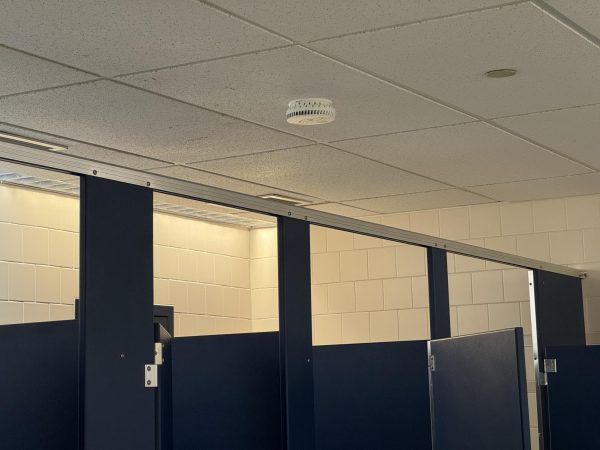
Colleen Felder • Oct 9, 2018 at 8:42 am
Well written article, Brandi!
Eli Slayton • Oct 6, 2018 at 9:25 pm
Hey Brandi!
Love this article! It’s so true and to the point. You could expand on the mental health crisis in this school in another article if you so choose but bringing up that situation makes so much sense. I could rant on but I’ll spare you. Great writing!
Eli